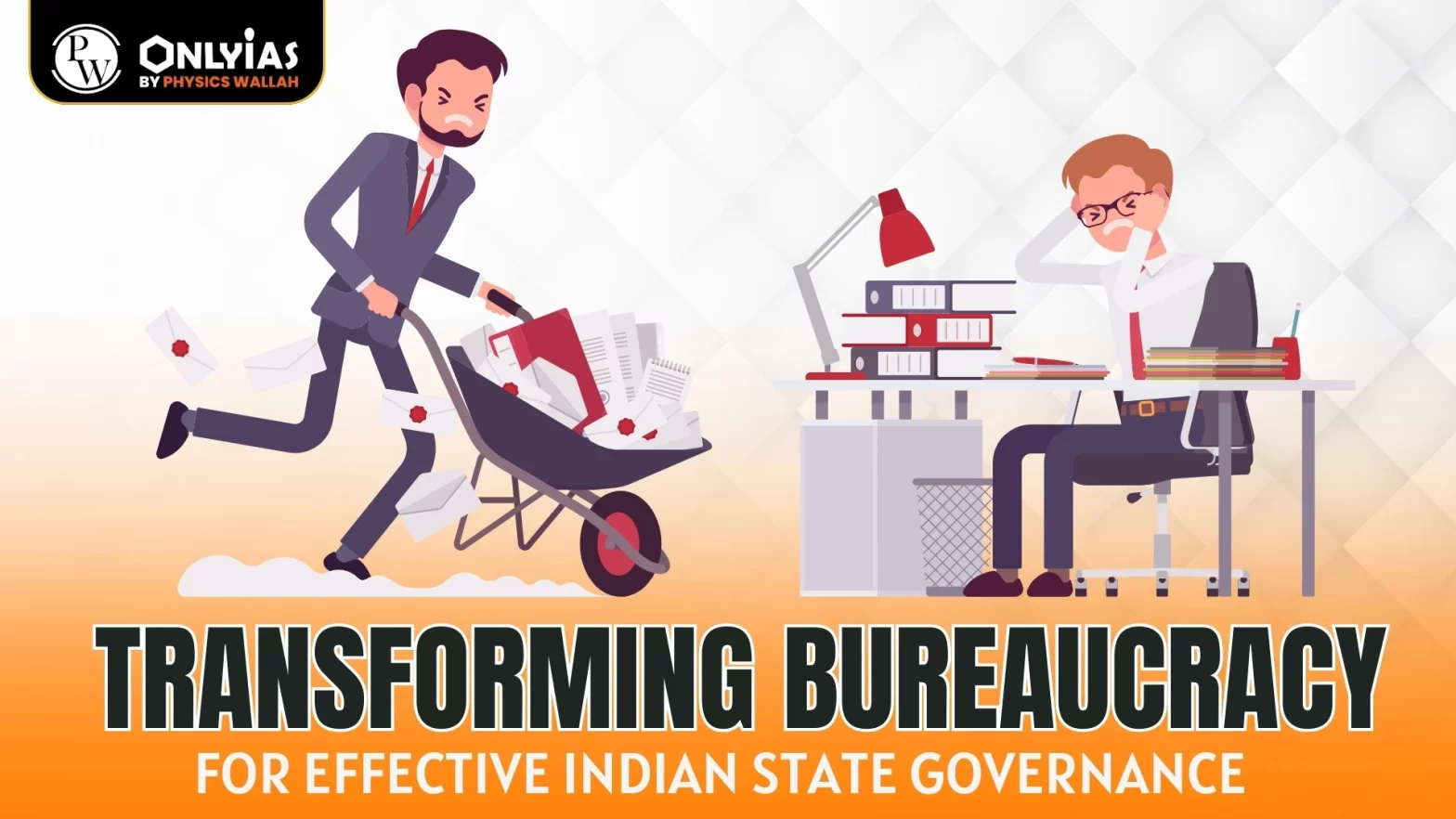Context: This article is based on an Editorial “Improving the capability of the Indian state” Which was published in the Hindu. India is facing a shortage of public personnel, the tax-GDP ratio, and public expenditure-GDP ratio, which adversely impact good policies, undermining effective formation and implementation.
Small Number of Public Servants in Indian State:
- In the G-20 group, India has the smallest number of civil servants per capita.
- Compared to Indonesia & China, the Indian public sector share in total employment is half.
- Compared to the UK, the Indian public sector share in total employment is about a third.
- In comparison to the US, the number of central government personnel is less than one-fourth.
What bureaucratic challenges are faced by the Indian State?
- Perverse incentives created by public institutions and the Skill Gap among Officials: These factors impacted on the making and implementation of sound policies.
- Lack of Trust and Accountability: Restrictions on the frontline personnel to decide on implementation-related issues foster a culture of mistrust and lack of accountability.
- Corruption: Due to the substantial salary hikes by the 6th Pay and the 7th Pay Commissions, most public sector salaries are much higher than private wages, which breeds corruption in appointments as it makes government jobs very lucrative.
- Concentration of Power within Departments: There is an extreme concentration of policy-making and implementation powers within departments.
- The Technocratic Gap: The top policymakers lack the technocratic skills, which impact the dealing of economic, financial, contract, and other technical matters.
- Financial Burden: The Centre and the States hire consultancy firms, which burdens them financially. As per media reports, the central government paid over ₹500 crore in the last five years to outsource crucial tasks.
- Narrowly scoped audits by the Comptroller and Auditor General of India: It encourages government officials to focus on compliance with rules rather than policy objectives.
- Use of hindsight information by the Oversight Agencies: Its use by the Central Vigilance Commission, the Central Bureau of Investigation, and courts have made the bureaucrats reluctant to exercise discretion in policy matters.
- Ready to Appeal: Appealing against arbitration and court awards has become the habit of officials, making the government the biggest litigator.
- Political Manipulation and Influences: The provision of appointments of retired officers to regulatory bodies and tribunals makes civil servants susceptible to political influences.
Also Read: Politicization of Bureaucracy and Its Consequences
What are potential solutions that can be implemented to enhance effective Indian State governance?
- Separation of Responsibilities: With the experiences of Australia, Malaysia, and the United Kingdom, it is desirable to separate the policymaking and implementation responsibilities to encourage innovations and make the programmes better suited to local contexts.
- Also, in India, the National Highways Authority of India is tasked with executing national highway projects, while policy decisions are made at the ministry level. It has drastically reduced delays and cost overruns.
- Delegation of Financial and Administrative Powers: It is a must for the frontline functionaries, with clearly defined processes for achieving trust and better implementation of policies.
- An Institutionalized and Regular Lateral Entry: It can help fill the civil services’ size and technocratic gap.
- Opportunity: Qualified officers in non-IAS services should be given an opportunity at high-level positions if they have the talent and the expertise required.
- Training: Civil servants at different levels can be provided subject-specific training under Mission Karmayogi (National Programme for Civil Services Capacity Building).
- Need to Augment the Strength of Professional Staff: It should be with market watchdogs, the Securities and Exchange Board of India, and the Reserve Bank of India (RBI).
- Counter the Problem of High Litigation: The oversight agencies must be sensitized to appreciate the context of policy decisions (with the actual decisions as well as their alternatives).
- Need for Political Will: It is required to address other issues, such as the appointment of retired officers to regulatory bodies and tribunals, which can be fixed by increasing the retirement age and making an absolute upper limit for all appointments.
- Counter Corruption: The future Pay Commissions need to moderately raise pay and need for a reduction in the upper age limit for government jobs.
- Book- State Capability in India: It is written by T. V. Somanathan and Gulzar Natarajan, suggesting various measures to improve things without fiscal and political consequences.
Conclusion:
The time has come for India to address the paradoxical nature that requires a multi-pronged approach and measures need to be taken to enhance the socially-driven individuals in Governance.
![]() 2 Dec 2023
2 Dec 2023

